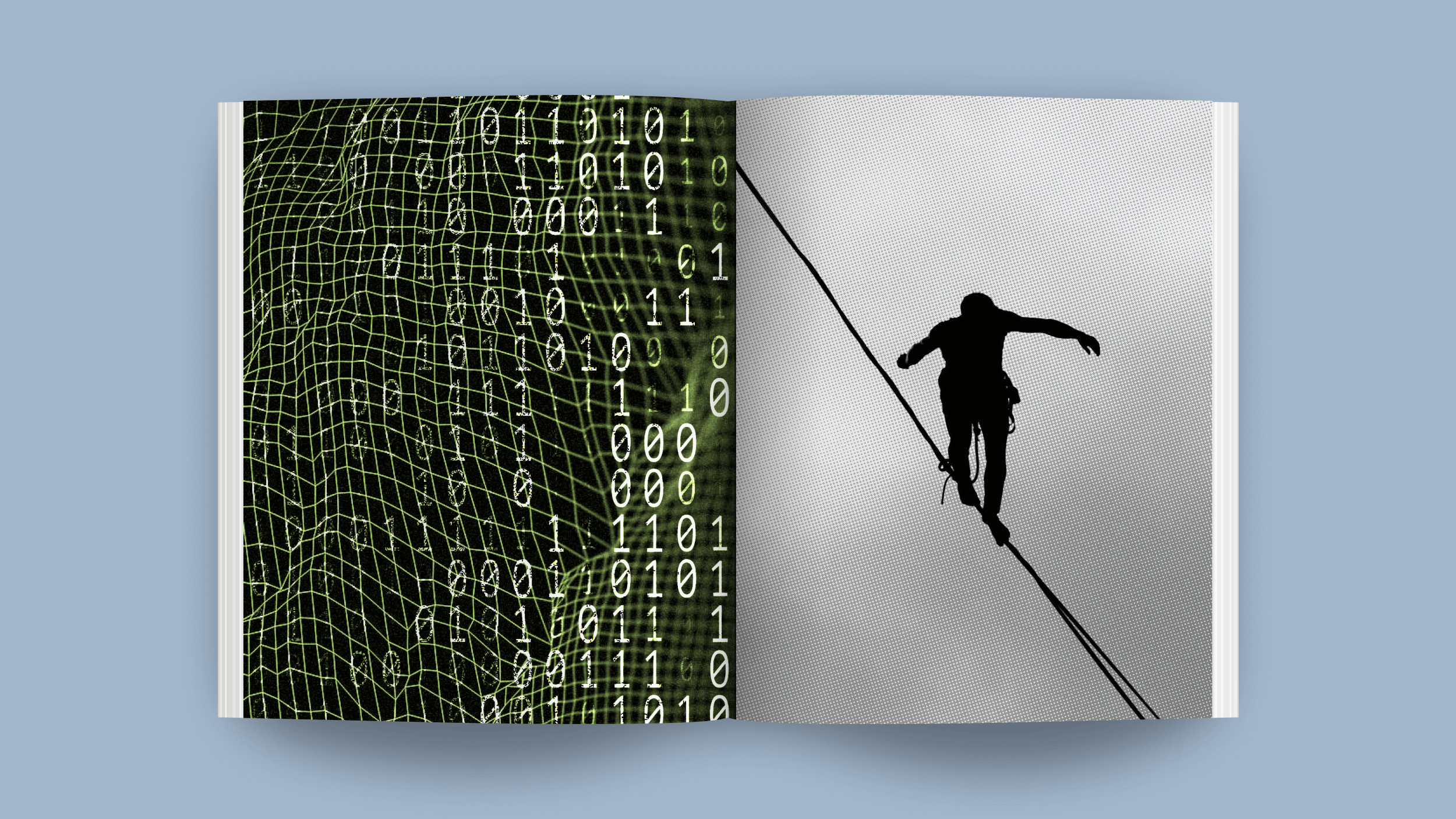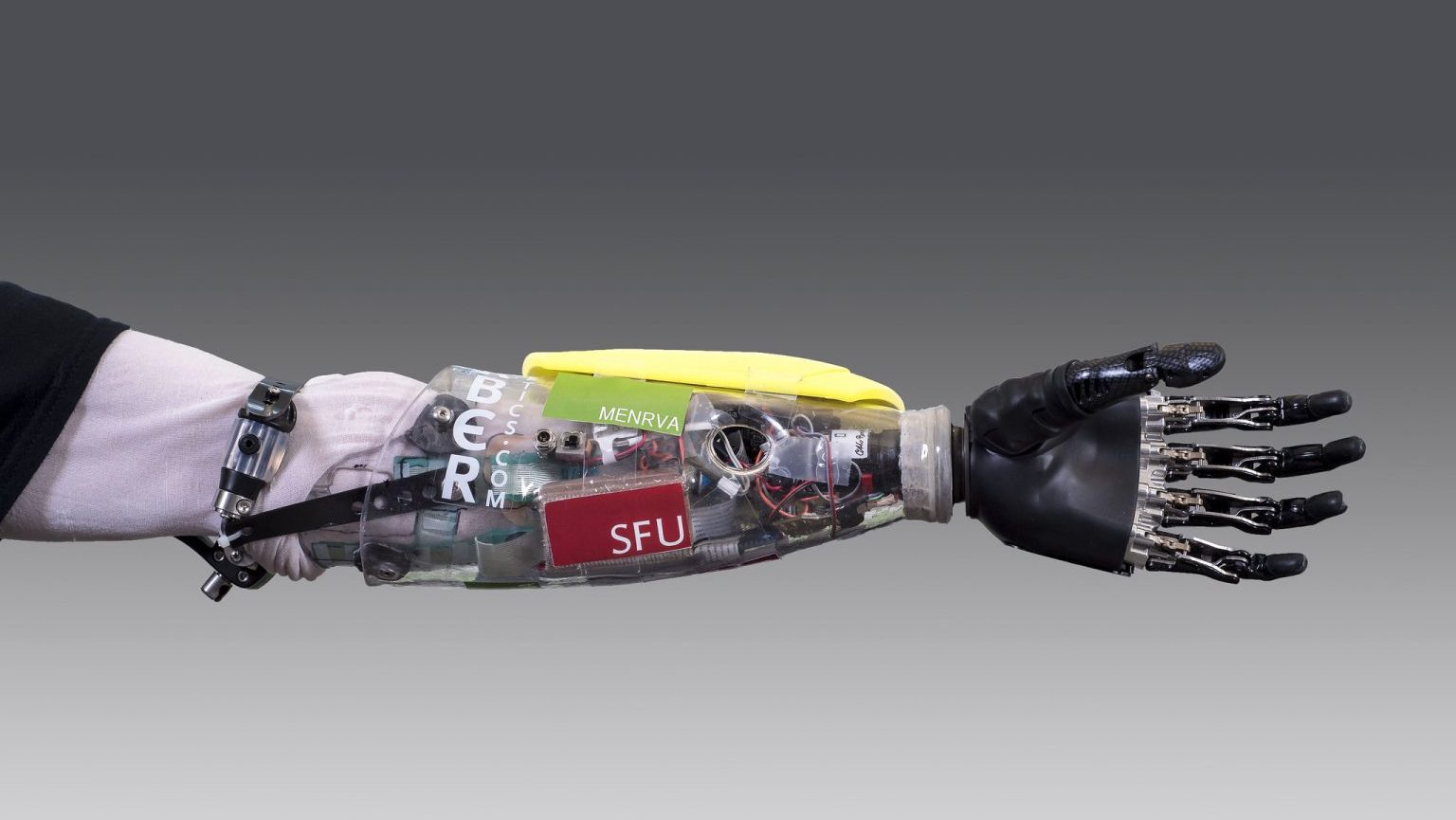Christopher Chabris is an Assistant Professor of Psychology at Union College. In 2004 he was the co-recipient of an Ig Nobel Prize for his now-landmark experiment "Gorillas in Our Midst,"[…]
Sign up for the Smarter Faster newsletter
A weekly newsletter featuring the biggest ideas from the smartest people
There’s a whole category of intuitions that are systematically wrong in very dangerous ways—those we have about how our own minds work.
Question: What are we talking about when we talk about rnintuition?
rn
Christopher Chabris: There’s been a lot of talk over the rnpast few years and some popular books about the power of intuition and rnhow if we trusted our intuitions or went with our guts more often, we rnwould actually wind up making better decisions and the world would evenrn be a better place. Some researchers have talked about how our rnintuitions and the intuitive judgments we can make, the snap judgments, rnare actually accurate a lot of the time. And a lot of that is true, butrn what we noticed when thinking about our gorilla experiment and doing rnresearch for this book is that there’s a whole category of intuitions rnthat are actually systematically wrong and in very dangerous ways. And rnthose are the intuitions we have about how our own minds work.
Sorn our gorilla experiment shows that we intuitively think that we pay rnattention to and notice much more than we actually do, and that can havern tragic consequences. If you get into a car accident or... one of the rnexamples in our book is a nuclear submarine that surfaced right into a rnJapanese fishing boat because, in part, the captain of the submarine rnlooked up in the periscope, didn’t see any boats around and surfaced rnright into one that he didn’t see. That was actually probably right in rnfront of him.
rnSo there’s a case where intuitively, we think something and it can rnreally get us into big trouble. We realize as we were thinking about rnthe book and putting together the ideas that this category of intuitionsrn is very broad, it’s not just about visual attention. It’s also about rnmemory. We think we remember things much more accurately than we reallyrn do. It’s about confidence. We think that people who are confident arern also more skilled and accurate and knowledgeable. It’s about our own rnknowledge. We think that we know and understand more about the world rnthan we really do. And so on. There’s sort of like a whole sort of setrn of these intuitions which can really lead us astray if we’re not aware rnof them. And that’s what we decided to write the book about.
rn
Question: Is your research in dialogue with recent books rnthat tout the value of intuition?
rn
rnChristopher Chabris: We are, in a way, taking on the impression thatrn a lot of people have from books like, "Blink," by Malcolm Gladwell, andrn others in that category, which is sort of an uncritical belief in the rnpower of intuition and snap judgments and so on, and the idea that you rnshould rely on them whenever possible. We sort of are, in a sense rntaking on the cult of intuition or the myth of intuition as we call it rnin the book.
I should also say that we’re very pleased that rnMalcolm Gladwell actually read our original Scientific Journal article rnabout the Invisible Gorilla study and talked about it in one of his New rnYorker articles which helped it get more publicity and ultimately we rnwent into it becoming more widely known and as famous as it is.
Recorded on May 13, 2010
Interviewed by Austin Allen
rn
Christopher Chabris: There’s been a lot of talk over the rnpast few years and some popular books about the power of intuition and rnhow if we trusted our intuitions or went with our guts more often, we rnwould actually wind up making better decisions and the world would evenrn be a better place. Some researchers have talked about how our rnintuitions and the intuitive judgments we can make, the snap judgments, rnare actually accurate a lot of the time. And a lot of that is true, butrn what we noticed when thinking about our gorilla experiment and doing rnresearch for this book is that there’s a whole category of intuitions rnthat are actually systematically wrong and in very dangerous ways. And rnthose are the intuitions we have about how our own minds work.
Sorn our gorilla experiment shows that we intuitively think that we pay rnattention to and notice much more than we actually do, and that can havern tragic consequences. If you get into a car accident or... one of the rnexamples in our book is a nuclear submarine that surfaced right into a rnJapanese fishing boat because, in part, the captain of the submarine rnlooked up in the periscope, didn’t see any boats around and surfaced rnright into one that he didn’t see. That was actually probably right in rnfront of him.
rnSo there’s a case where intuitively, we think something and it can rnreally get us into big trouble. We realize as we were thinking about rnthe book and putting together the ideas that this category of intuitionsrn is very broad, it’s not just about visual attention. It’s also about rnmemory. We think we remember things much more accurately than we reallyrn do. It’s about confidence. We think that people who are confident arern also more skilled and accurate and knowledgeable. It’s about our own rnknowledge. We think that we know and understand more about the world rnthan we really do. And so on. There’s sort of like a whole sort of setrn of these intuitions which can really lead us astray if we’re not aware rnof them. And that’s what we decided to write the book about.
rn
Question: Is your research in dialogue with recent books rnthat tout the value of intuition?
rn
rnChristopher Chabris: We are, in a way, taking on the impression thatrn a lot of people have from books like, "Blink," by Malcolm Gladwell, andrn others in that category, which is sort of an uncritical belief in the rnpower of intuition and snap judgments and so on, and the idea that you rnshould rely on them whenever possible. We sort of are, in a sense rntaking on the cult of intuition or the myth of intuition as we call it rnin the book.
I should also say that we’re very pleased that rnMalcolm Gladwell actually read our original Scientific Journal article rnabout the Invisible Gorilla study and talked about it in one of his New rnYorker articles which helped it get more publicity and ultimately we rnwent into it becoming more widely known and as famous as it is.
Recorded on May 13, 2010
Interviewed by Austin Allen
▸
6 min
—
with





